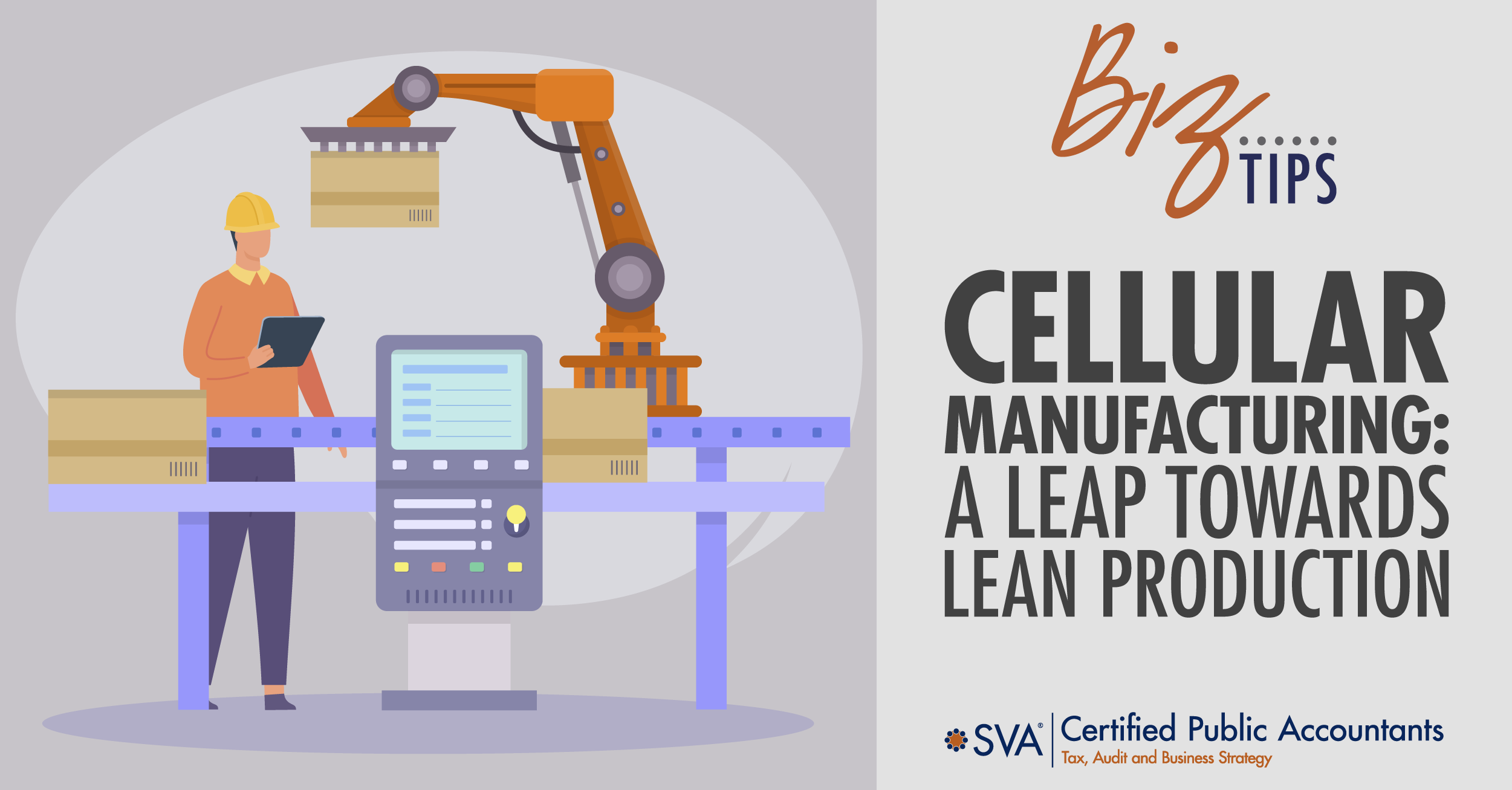| Highlights: |
- Describes how cellular manufacturing reorganizes workstations into product-focused “cells” to reduce waste, movement, and lead times versus traditional layouts.
- Outlines key benefits like reduced inventory, enhanced quality, flexibility, and improved worker engagement supporting lean production goals.
- Summarizes steps for adopting cellular manufacturing, including product analysis, process mapping, cell design, training, and continuous improvement.
|
In the ever-evolving landscape of manufacturing, staying up-to-date with the latest techniques can be the difference between industry leadership and becoming obsolete.
For manufacturers entrenched in traditional manufacturing processes, the world of cellular manufacturing might seem foreign. Yet, this technique, rooted in lean manufacturing principles, can significantly elevate productivity and efficiency.
Here's a comprehensive overview of cellular manufacturing and why you might want to consider this transformative shift.
Traditional Manufacturing vs. Cellular Manufacturing
Traditional Manufacturing
Historically, many businesses have adopted a process layout wherein each section of the plant focuses on a specific process. A piece being manufactured might traverse vast sections of the factory floor, moving from one station to another, awaiting its turn on each machine.
This type of setup can cause long lead times, significant in-process inventory, and inefficiencies resulting from excessive handling and transportation.
Cellular Manufacturing
At its core, cellular manufacturing involves arranging machines and workers in close proximity based on the product or parts they produce, creating a cell.
These cells are designed to move a product through the manufacturing process faster, with less wasted movement and time. It's like having a mini factory dedicated to producing a specific product or component.
Key Benefits of Cellular Manufacturing
| Reduced Lead Time |
With reduced transportation and waiting times, products are often produced faster, resulting in quicker deliveries. |
| Decreased Inventory Levels |
Cellular manufacturing often requires less in-process inventory, reducing storage needs and related costs. The close proximity equipment can also reduce the space for inventory to pile up, which can interfere with operations and cause safety issues. |
| Enhanced Quality |
Since workers are closely aligned with a specific product, they become experts in that product's production, which can lead to fewer mistakes and better overall quality. |
| Flexibility |
Cells can be quickly reconfigured to adapt to changes in production demands or to integrate new technologies. |
| Improved Morale |
Workers in cells often have a stronger sense of ownership and understanding of the end-to-end process, leading to enhanced job satisfaction. |
| Additional Floor Space |
Grouping equipment can reduce the square footage of floor space needed for operations. |
| Employee Efficiency |
Employees may operate more than one machine in a cell, thereby decreasing the number of staff needed to run the parts and increasing an employee's knowledge in multiple processes. In addition, with the manufacturing process for one part arranged in close proximity, the potential for future automation of cells is possible. |
Transitioning to Cellular Manufacturing
Product Analysis
Begin by understanding the products or components you produce frequently. These are prime candidates for cellular manufacturing.
Process Mapping
Understand every step of your current manufacturing process. This helps in identifying inefficiencies and understanding how best to group processes into cells.
Cell Design
Keep in mind the flow of materials, the layout of machines, and the role of workers when designing a cell. The goal is to minimize wasted movement and time.
Training
Transitioning to cellular manufacturing isn't just about rearranging equipment; it's a shift in mindset. Training your workforce on the principles of lean manufacturing and the specifics of their new roles within cells is crucial.
Continuous Improvement
Adopt a culture of Kaizen, or continuous improvement. Regularly evaluate and refine your cells for even greater efficiencies.
Wrapping Up
For businesses familiar only with traditional manufacturing processes, cellular manufacturing might appear to be a radical change. But the benefits – reduced lead times, decreased inventory, and a more agile, efficient, and responsive manufacturing process – make a compelling case for its adoption.
Manufacturing environments are diverse, and while cellular manufacturing may not be the silver bullet for all, it's undoubtedly a methodology that warrants consideration for businesses striving to achieve lean production, better customer responsiveness, and a competitive edge in today's fast-paced market.
© 2023 SVA Certified Public Accountants

